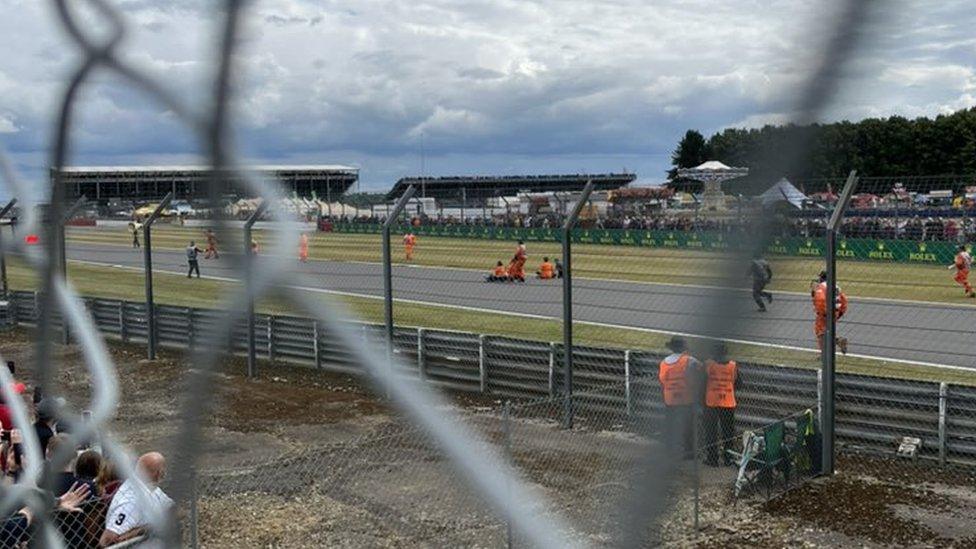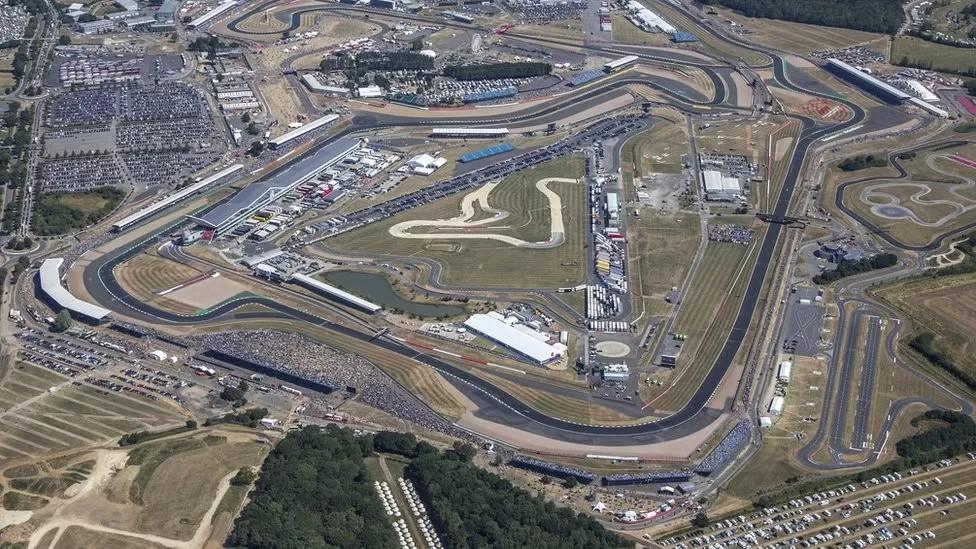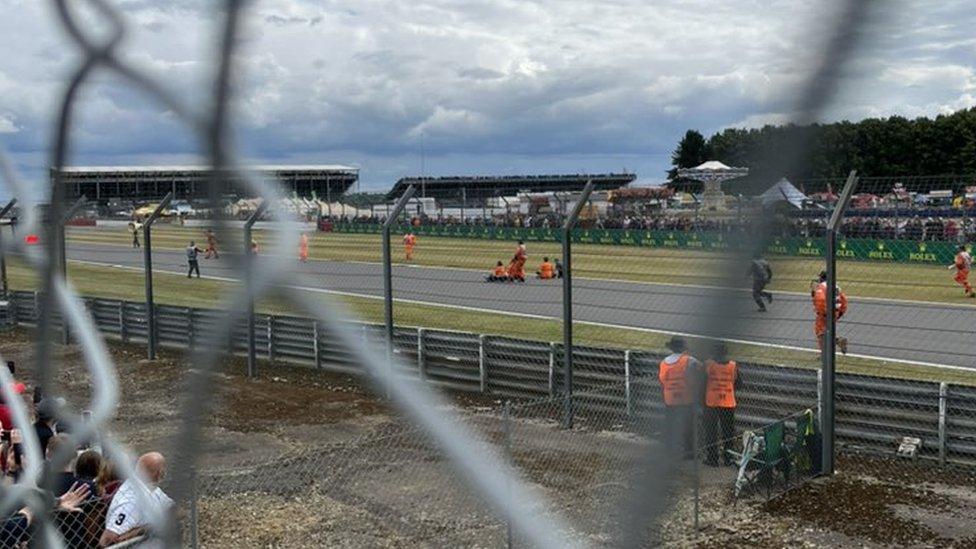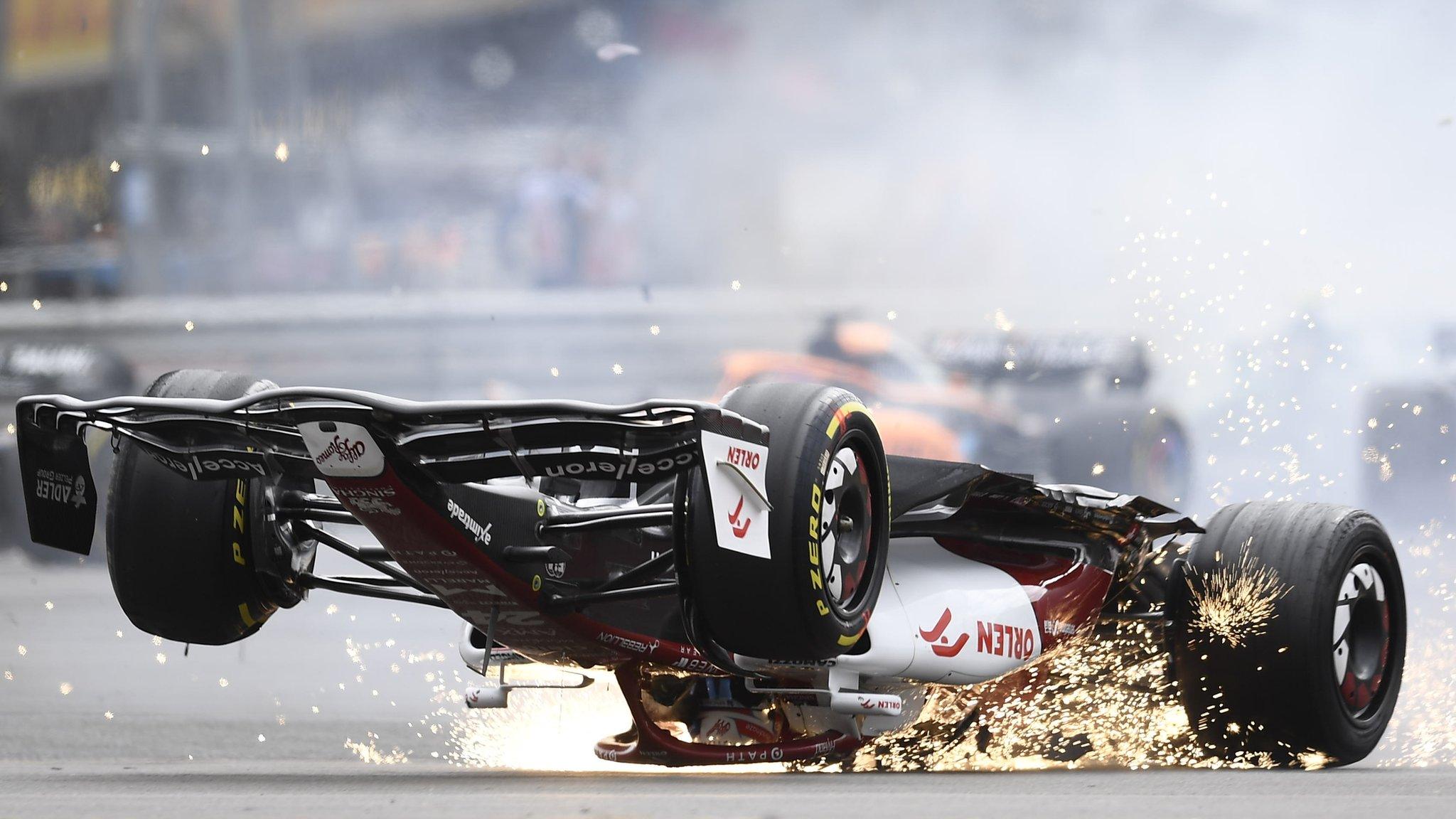Silverstone F1 track invaders guilty of causing public nuisance
- Published

Protesters invaded the Silverstone track at the beginning of the Formula 1 British Grand Prix
A group of Just Stop Oil protesters have been found guilty of risking "serious harm" during a track invasion at the Formula 1 British Grand Prix.
Four men and two women were convicted of causing a public nuisance.
The jury was shown footage of five of them sitting on Silverstone's Wellington Straight as two F1 cars passed close by.
Prosecutors said the group had caused an immediate risk of serious harm. They will be sentenced next month.
Northampton Crown Court heard the group had sat "in the face" of fast-moving vehicles and risked serious harm to F1 drivers and race marshals at the track in Northamptonshire.
The six protesters convicted of causing a public nuisance were:
Alasdair Gibson, 22, from Aberdeen
Louis McKechnie, 22, from Manchester
Bethany Mogie, 40, from St Albans, Hertfordshire
David Baldwin, 47, of Stonesfield, Oxfordshire
Emily Brocklebank, 24, of Yeadon, Leeds
Joshua Smith, 29, from Lees, Oldham
Footage was shown at the trial of F1 drivers Yuki Tsunoda and Esteban Ocon passing three men and two women who were sitting on, or being dragged off, the track on 3 July.
The protesters claimed the demonstration had a "meticulous" safety plan and did not pose a risk of serious harm.

The protest took place at the Silverstone circuit in Northamptonshire on 3 July
Brocklebank, Gibson, Mogie, McKechnie and Smith invaded the track and Baldwin was found in a car park with glue, cable ties and a Just Stop Oil banner.
Prosecutors said the group were all "in it together".
Simon Jones, counsel for the prosecution, said the action took place as the race was under a red flag due to a serious accident at the start.
"The prosecution say that there was clearly an immediate risk of serious harm being caused," he said.
"Plainly they could have been struck by fast-moving vehicles with obvious severe consequences.
"We say that that their actions also caused risk to the drivers themselves and the marshals."
McKechnie, who grew up in Weymouth in Dorset, told jurors the group had planned the protest over two and a half months, making it as safe as possible.
The six were all told they faced a possible jail term when they returned to court on 31 March.
Mr Justice Garnham told the activists' barristers: "All of them should understand and be in no doubt that I will be considering all possible options when it comes to sentence, and that includes the possibility of a prison sentence."
All six were granted bail after providing a verbal commitment not to become involved in further protests while awaiting sentence.

Find BBC News: East of England on Facebook, external, Instagram, external and Twitter, external. If you have a story suggestion please email eastofenglandnews@bbc.co.uk, external
- Published1 February 2023

- Published25 January 2023

- Attribution
- Published3 July 2022

- Published30 June 2022
